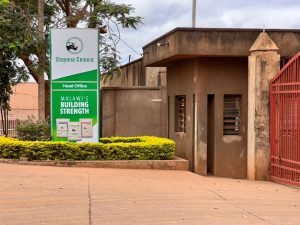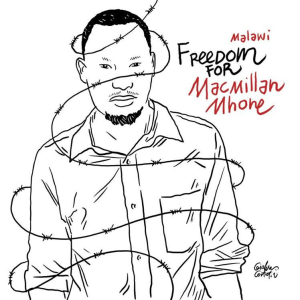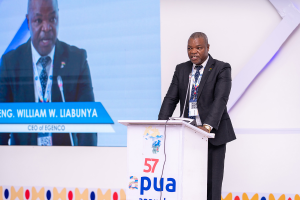IFMIS SUPPLIER ALLEGEDLY BRIBED MALAWI GOVERNMENT OFFICIALS, US COURT DOCUMENTS REVEAL

Former Finance Minister Sosten Gwengwe and officials from Germany development arm GIZ during a ceremony to launch a computer laboratory set to facilitate the training of personnel from the Accountant General’s office to step up implementation of the newly rolled-out Integrated Financial Management Information System (Ifmis).
BY GOLDEN MATONGA
Details from a US court case have revealed that the supplier of Malawi’s Integrated Financial Management Information System (IFMIS), a system designed to prevent fraud and mismanagement in government department and agency payments, allegedly bribed Malawian officials to secure the software supply contract.
In court documents, SAP SE, a global software company based in Germany, has admitted to paying bribes worldwide. This admission comes as part of a $100 million settlement with the US Securities and Exchange Commission (SEC), which conducted the investigation.
The SEC charged SAP SE with violations of the US Foreign Corrupt Practices Act (FCPA), stemming from alleged bribery schemes in South Africa, Malawi, Kenya, Tanzania, Ghana, Indonesia, and Azerbaijan.
Although no specific Malawian officials are named, court documents suggest that in 2017, government officials received undisclosed bribes, aiding SAP SE in securing a tender worth $1,416,878 (approximately K2,384,605,674). At the time, the Democratic Progressive Party was in power. However, whether the payments were made to political leaders at the Ministry of Finance or to its appointed technocrats remains unclear.
According to the documents, the bribes were intended to assist the company’s intermediaries in obtaining tender documents before the tender process was officially opened.
Reads the court disposition: “GA Intermediary 1 helped SAP Africa improperly access tender documents to obtain a December 29, 2017 contract with the Government of Malawi valued at $1,416,878 in 6 exchanges for improper payments to Malawi government officials. GA Intermediary 1 benefited from this deal as a reseller of the SAP products to the government. Emails indicate that certain SAP Africa employees, including an account executive and a local sales director, knew of efforts by employees at GA Intermediary 1 to access draft tender documents to influence the outcome of the tender in SAP Africa’s favour. The CEO of GA Intermediary 1 emailed two SAP Africa sales executives saying, “we have already seen the documents in confidence. Please keep this very confidential.” One of those two sales executives sent the other an internal email stating, “[GA Intermediary 1] has been ready for quite some time now—they got the script months ago—of course from ‘internal friends.’”
The Securities and Exchange Commission’s settlement announcement stated that SAP Africa conducted business across Greater Africa through resellers, including a Zimbabwe-based reseller known as ‘GA Intermediary 1’ in court documents, which facilitated transactions in Malawi, Tanzania, Ghana, and Kenya.
“GA Intermediary 1 benefited from this deal as a reseller of the SAP products to the government. Emails indicate that certain SAP Africa employees, including an account executive and a local sales director, knew of efforts by employees at GA Intermediary 1 to access draft tender documents to influence the outcome of the tender in SAP Africa’s favour. The CEO of GA Intermediary 1 emailed two SAP Africa sales executives, saying, “We have already seen the documents in confidence. Please keep this very confidential.” One of those two sales executives sent the other an internal email stating, “[GA Intermediary 1] has been ready for quite some time now—they got the script months ago—of course from ‘internal friends,’” reads the court disposition.
The procurement process for the new Integrated Financial Management Information System (IFMIS) in Malawi began in 2015, financed by the World Bank under the Financial Reporting and Oversight Improvement Project (FROIP). However, as per the Ministry of Finance’s website, the FROIP project concluded before a successful bidder was accepted in April 2018.
Attorney General Thabo Nyirenda, responding to the developments, stated that he was unaware of them but confirmed his office could initiate an investigation based on the findings.
“I am not aware of this,” said Nyirenda. When asked if the country could open an investigation into the matter following the settlement, Nyirenda answered affirmatively and queried if officials had been mentioned in the documents.
The Anti-Corruption Bureau, the government agency responsible for investigating corruption and abuse of office in Malawi, was not available for immediate comment. However, the Platform for Investigative Journalism (PIJ) has submitted inquiries to its leadership.
Malawi’s introduction of the new IFMIS marks the country’s third attempt at establishing a government financial management system. The Ministry of Finance states that the choice of the SAP platform and its implementation strategy is based on lessons learned and corrections made from previous attempts.
In 2013, the Integrated Financial Management Information System (IFMIS) was implicated in ‘cashgate,’ the largest public funds heist in Malawi’s history, with over K24 billion kwacha looted between July and September of that year. The critical role of IFMIS in detecting fraud is paramount. Recognizing this, the German government, through its development arm GIZ, has invested in training Malawian officials for better management of the system.
In October 2023, The Nation newspaper reported that the World Bank emphasized the necessity of successfully implementing the IFMIS as a critical step in improving Malawi’s economic situation.
Malawi officials have previously been implicated in foreign court cases involving bribery for contracts. In November 2022, PIJ reported that officials from Joyce Banda’s administration allegedly accepted bribes from the oil giant Glencore. The bribes were reportedly for the appearance of purchasing oil from Nigeria, a deal later facilitated by Glencore, as revealed in a UK court settlement.
Glencore reportedly paid a total of USD 335,920 (approximately 369 million kwacha) in bribes to officials in Joyce Banda’s administration. This includes payments to an unnamed official, codenamed ‘NO1’, which has raised questions about whether Banda herself was among those bribed.
The Banda administration is accused of having appointed a member of the Anyiam-Osigwe group as Malawi’s Consul General despite the individual previously facing fraud accusations in Zambia.





